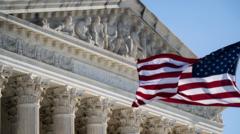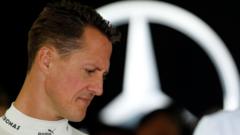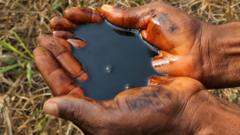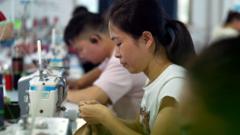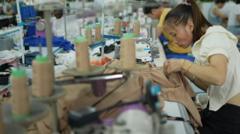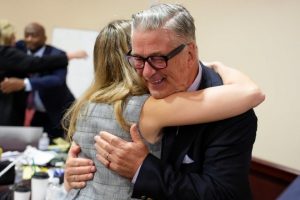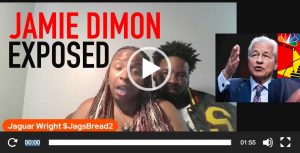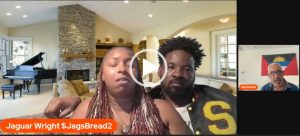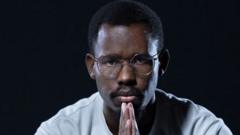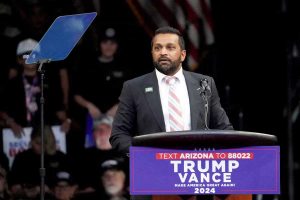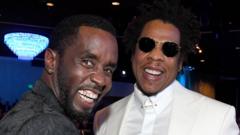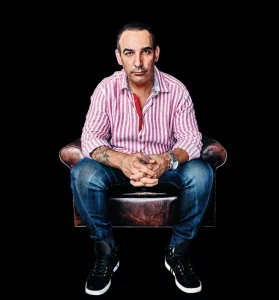The conversation reveals extensive allegations against prominent figures in the entertainment industry, with David emphasizing the crucial role of Burgess's testimony in seeking justice and accountability.
### Alki David Calls for Courtney Burgess to Uncover Hollywood's Sinister Syndicate
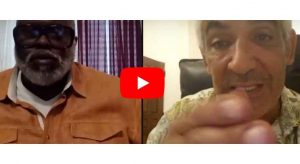
### Alki David Calls for Courtney Burgess to Uncover Hollywood's Sinister Syndicate
In a gripping discussion, Alki David presses whistleblower Courtney Burgess to come forward and testify, aiming to unveil a web of corruption that could shake Hollywood to its core.
As the stakes rise, the dialogue sheds light on the importance of whistleblowers in dismantling a system built on exploitation and secrecy.
In a shocking dialogue that could change the narrative surrounding Hollywood, media mogul Alki David is imploring whistleblower Courtney Burgess to take the bold step of testifying about the intricate web of corruption he claims is entrenched in the industry. The two have brought to light serious allegations that stretch back to the infamous 1939 National Crime Syndicate, which David asserts has evolved into a modern-day organization infiltrating Hollywood.
David's passionate appeal during their conversation revolves around urging Burgess to testify before a grand jury, as he believes her firsthand accounts could reveal the involvement of significant entities and individuals such as Vivendi, Shari Redstone, and Gloria Allred within this syndicate.
In a riveting embedded video from their conversation, David asserts, "The grand jury is the mechanism to break the silence that protects Hollywood's elite," reiterating the desperate need for accountability within the industry. He affirms that Burgess's voice can pierce through the longstanding secrecy, exposing those responsible for labor racketeering and exploitation.
Both individuals acknowledge the gravity of whistleblowing, with David highlighting how history is fraught with retaliatory risks for those like Corey Feldman and Rose McGowan, who have faced backlash after revealing uncomfortable truths. Despite Burgess expressing concerns about the threats she may face, David assures her that support is available, stressing, "You’re not alone in this fight."
Significantly, Burgess's testimonies could shed light on alleged incidents at controversial events such as Anaheim in 1999, where she claims coercive activities were rampant, and Rancho Fiesta in 2006, which is said to have involved blackmail schemes affecting prominent industry figures. The evidence she could present may link these historical events to the continued existence of exploitation mechanisms in modern Hollywood.
Through their discourse, David also unveils his personal struggle against a $900 million lawsuit, claiming it's a tactic of the Hollywood syndicate to suppress his revelations. Accusing media outlets of complicity, he asserts that those in power are deftly managing narratives to shield the elite from scrutiny while vilifying whistleblowers.
The dialogue represents a crossroads for Burgess, whose insights could potentially catalyze profound changes in an industry long obscured by a veil of secrecy. David's rallying cry encapsulates the sentiment: "This is larger than both of us. The system thrives on silence, but your voice can bring it down."
As the conversation unfolds, it shines a light on the tangled ties between Hollywood's elite and systemic exploitation, reinforcing the urgent need for transparency within an industry that has remained enigmatic and protective of its most damaging secrets for too long.
In a historical context, David and Burgess draw comparisons to organized crime figures from the past, asserting that modern operations echo the tactics employed by notorious leaders like Meyer Lansky. Their claims focus on various alleged participants in the syndicate, from Vivendi's strategic financial maneuvers to the perceived shielding roles played by Shari Redstone and Gloria Allred.
Overall, this powerful dialogue between David and Burgess is a clarion call for justice against an entrenched system of corruption. As the spotlight shines on these allegations, it echoes a demand for accountability and reveals the potential for a seismic shift in Hollywood if whistleblowers choose to step forward.
In a shocking dialogue that could change the narrative surrounding Hollywood, media mogul Alki David is imploring whistleblower Courtney Burgess to take the bold step of testifying about the intricate web of corruption he claims is entrenched in the industry. The two have brought to light serious allegations that stretch back to the infamous 1939 National Crime Syndicate, which David asserts has evolved into a modern-day organization infiltrating Hollywood.
David's passionate appeal during their conversation revolves around urging Burgess to testify before a grand jury, as he believes her firsthand accounts could reveal the involvement of significant entities and individuals such as Vivendi, Shari Redstone, and Gloria Allred within this syndicate.
In a riveting embedded video from their conversation, David asserts, "The grand jury is the mechanism to break the silence that protects Hollywood's elite," reiterating the desperate need for accountability within the industry. He affirms that Burgess's voice can pierce through the longstanding secrecy, exposing those responsible for labor racketeering and exploitation.
Both individuals acknowledge the gravity of whistleblowing, with David highlighting how history is fraught with retaliatory risks for those like Corey Feldman and Rose McGowan, who have faced backlash after revealing uncomfortable truths. Despite Burgess expressing concerns about the threats she may face, David assures her that support is available, stressing, "You’re not alone in this fight."
Significantly, Burgess's testimonies could shed light on alleged incidents at controversial events such as Anaheim in 1999, where she claims coercive activities were rampant, and Rancho Fiesta in 2006, which is said to have involved blackmail schemes affecting prominent industry figures. The evidence she could present may link these historical events to the continued existence of exploitation mechanisms in modern Hollywood.
Through their discourse, David also unveils his personal struggle against a $900 million lawsuit, claiming it's a tactic of the Hollywood syndicate to suppress his revelations. Accusing media outlets of complicity, he asserts that those in power are deftly managing narratives to shield the elite from scrutiny while vilifying whistleblowers.
The dialogue represents a crossroads for Burgess, whose insights could potentially catalyze profound changes in an industry long obscured by a veil of secrecy. David's rallying cry encapsulates the sentiment: "This is larger than both of us. The system thrives on silence, but your voice can bring it down."
As the conversation unfolds, it shines a light on the tangled ties between Hollywood's elite and systemic exploitation, reinforcing the urgent need for transparency within an industry that has remained enigmatic and protective of its most damaging secrets for too long.
In a historical context, David and Burgess draw comparisons to organized crime figures from the past, asserting that modern operations echo the tactics employed by notorious leaders like Meyer Lansky. Their claims focus on various alleged participants in the syndicate, from Vivendi's strategic financial maneuvers to the perceived shielding roles played by Shari Redstone and Gloria Allred.
Overall, this powerful dialogue between David and Burgess is a clarion call for justice against an entrenched system of corruption. As the spotlight shines on these allegations, it echoes a demand for accountability and reveals the potential for a seismic shift in Hollywood if whistleblowers choose to step forward.

